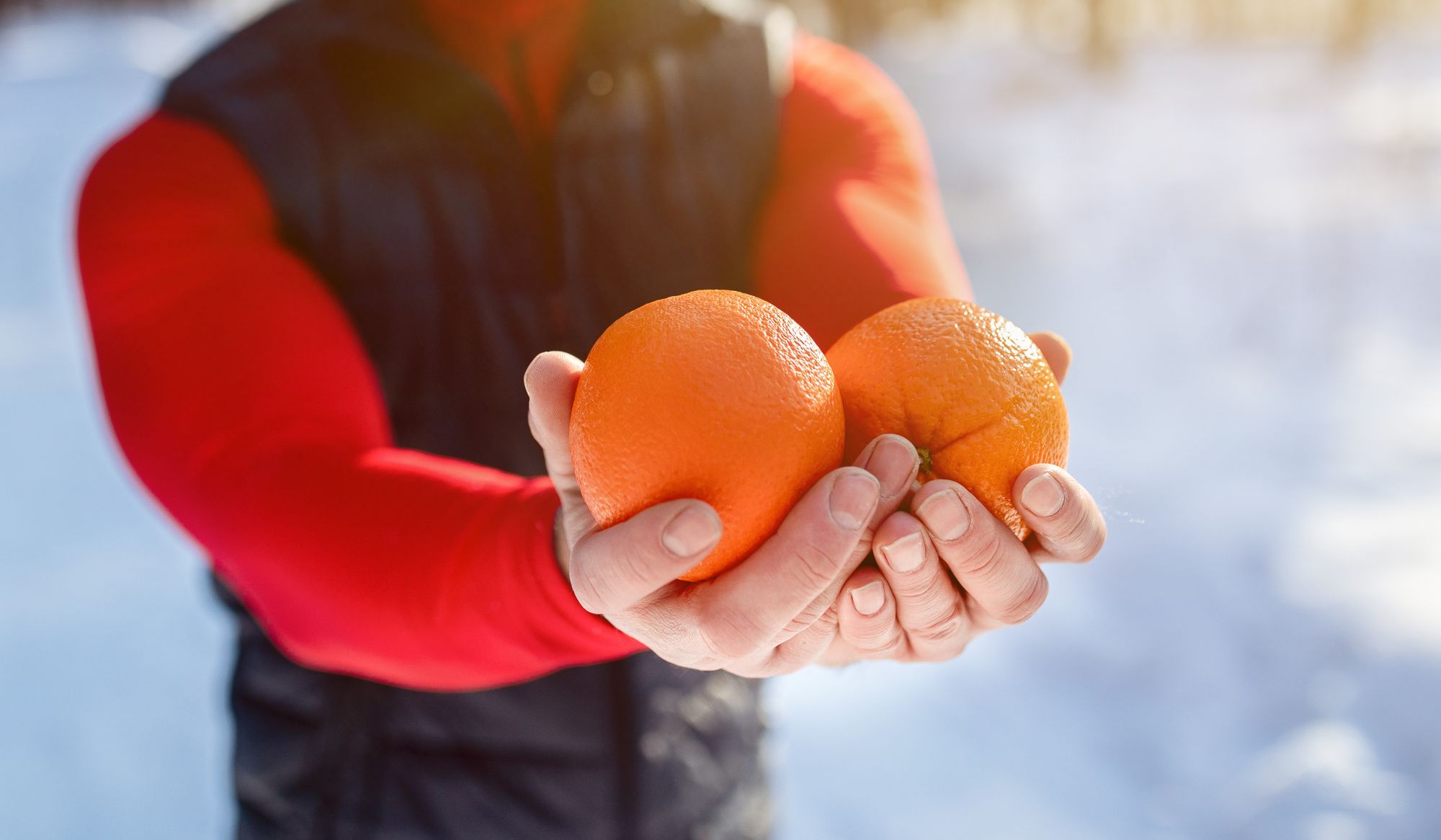3 Foods You Don’t Have to Avoid in Your Fitness Journey
Carbs, artificial sugar, and soy protein — if you want gains and weight loss, all these got to go when you start on your fitness journey. Right?

The more fitness articles you read, the more it appears that there's something you must cut out from your diet — carbohydrates, junk food, artificial sugar, etc. — for better results (in terms of performance and aesthetics) in the gym ❌
But here’s the thing: most of the advice you read? They’re complete BS.
In this article, we tear apart some of the most common, misguided beliefs on foods “bad” for your fitness journey, so you (finally) learn what matters and what doesn’t in your quest to achieve your fitness goals.
1: Carbohydrates
Think low-carb diets, like the ketogenic diet, would help you lose weight faster? Well, they could.
This is apparent from the large body of research showing a lack of meaningful differences between high and low-carbohydrate diets.
Note that this doesn’t mean you can’t achieve weight loss (then sustain it) with a low-carb diet. It simply means that you’re going to face difficulties sticking to the diet — which helps you stay within a set calorie budget — owing to its restrictive nature in the long run.
Psst: find out how to eat less without starving yourself here:

So, theoretically speaking, if you can stick to the low-carb diet for life, you needn’t worry. Right? Well, not so fast.
See, low-carbohydrate diets are also associated with the following:
- Initial fatigue: Many people report feeling weak and tired during the initial phase of a low-carbohydrate diet — and this has been observed to last anywhere from one to five weeks. Imaginably, this would set you back on your fitness journey (sometimes even before you’ve begun).
- Decreased performance: Remove carbs from the equation, and you likely won’t be able to lift as heavy or as many reps as you did before. And given that training volume is arguably the most significant predictor of hypertrophy, you see where this is going — leading us to the next point.
- Impaired muscle gains: Beyond the point above, there's another way the low-carb diet could hurt your gains. And that is: it suppresses your appetite, which means you may find it incredibly challenging to hit the calorie intake needed for optimal muscle growth — thus explaining research showing that non-ketogenic diets tend to lead to greater lean mass gains than a ketogenic diet.
Bottom line?
You don’t have to avoid carbohydrates on your fitness journey ✨???✨
Doing so likely won’t yield better weight loss results (compared to any diet allowing you to achieve a calorie deficit); in fact, it may even hinder your progress in the gym.
2: Artificial sugar
Consuming artificial sugar would cause cravings for sugary foods — and, in turn, increase your calorie intake (good luck with your fitness journey then!) At least, that's what you'd typically learn from articles or hear from well-intentioned friends.
But guess what? They’re wrong.
On the contrary (and somewhat ironically), there’s even evidence that participants report less hunger — and consume fewer calories as a result — when they replace sugary foods and beverages with artificially sweetened alternatives.
Even better: various studies show that this may lead to a weight loss of up to 1.3 kg (2.9 pounds).
What about its adverse health effects? Research suggests that such worries are unfounded:
- Diabetes: Many controlled studies show that artificial sweeteners do not negatively affect blood sugar or insulin levels.
- Metabolic syndrome: Research consistently shows that the consumption of diet soda — which is often laced with artificial sweeteners — either has no effect or may even help protect against metabolic syndrome. To further elaborate on the latter, let’s look at this 2012 study published in The American Journal of Clinical Nutrition. Researchers had randomly assigned people with obesity to drink either 1 liter (a quarter gallon) of regular soda, water, or semi-skimmed milk each day. By the end of the six-month study, participants assigned the diet soda weighed 17-21% less, had 24-31% less belly fat, 32% lower cholesterol levels, and 10-15% lower blood pressure than those drinking regular soda.
- Cancer: Ah, yes — cancer. Thankfully, more than 30 human studies have failed to find a link between artificial sweeteners and the risk of developing cancer.
While artificial sweeteners could help you with your weight loss goals, simply swopping regular sugar out isn’t going to do all the heavy lifting for you.
There is still plenty of lifestyle and dietary tweaks you’ll have to make — more details below:

3: Soy protein
This one goes out to all the men believing that soy — thanks to its content of phytoestrogens — could reduce testosterone and, in turn, hurt muscle gains.
You'd have noticed a common theme running across this article if you've been paying attention (we're debunking myths!)
There are plenty of studies showing that soy protein is beneficial for hypertrophy. Take, for instance, this 2020 study. Researchers found that lean mass and strength increases in untrained participants are comparable when strength training and supplementing with soy or whey matched for leucine.
But wait — before you take the results at face value and think that soy protein (i.e., a plant-based protein) is just as effective as whey (i.e., an animal-derived protein), note the keywords "matched for leucine".
Ultimately, if you're on a vegan diet, you will have to be mindful of eating a variety of high-quality, plant-based protein sources to hit the leucine and overall protein requirement needed for optimal muscle growth.
Feeling lost? Don't worry. Check out our past article on maximizing muscle growth on a vegan diet for more guidance:

Takeaway
There's a ton of misinformation out there (e.g., on the Internet, written in magazines, and from hearsay) that can set you back on your fitness journey.
Good news: you don't have to be a victim.
If you're looking for a credible support system that'll help you achieve all your fitness goals, your search ends with GymStreak — an AI-powered personal trainer app that:
- Customizes your fitness plan to your unique needs (Can’t do an exercise? It’s out!)
- Links you up with like-minded fitness enthusiasts
- Provides science-based fitness information (e.g., this article)
Download GymStreak
Don't wait. Do it now.
References
Anton, S. D., Martin, C. K., Han, H., Coulon, S., Cefalu, W. T., Geiselman, P., & Williamson, D. A. (2010). Effects of stevia, aspartame, and sucrose on food intake, satiety, and postprandial glucose and insulin levels. Appetite, 55(1), 37–43. https://doi.org/10.1016/j.appet.2010.03.009
Bosetti, C., Gallus, S., Talamini, R., Montella, M., Franceschi, S., Negri, E., & La Vecchia, C. (2009). Artificial sweeteners and the risk of gastric, pancreatic, and endometrial cancers in Italy. Cancer Epidemiology, Biomarkers & Prevention: A Publication of the American Association for Cancer Research, Cosponsored by the American Society of Preventive Oncology, 18(8), 2235–2238. https://doi.org/10.1158/1055-9965.EPI-09-0365
Chatterton, S., Helms, E., Zinn, C., & Storey, A. (2017). The effect of an 8-week low carbohydrate high fat (LCHF) diet in sub-elite Olympic weightlifters and powerlifters on strength, body composition, mental state and adherence: A pilot case-study. Journal of Australian Strength and Conditioning, 25.
Escobar, K. A., Morales, J., & Vandusseldorp, T. A. (2016). The Effect of a Moderately Low and High Carbohydrate Intake on Crossfit Performance. International Journal of Exercise Science, 9(3), 460–470.
Gallus, S., Scotti, L., Negri, E., Talamini, R., Franceschi, S., Montella, M., Giacosa, A., Dal Maso, L., & La Vecchia, C. (2007). Artificial sweeteners and cancer risk in a network of case-control studies. Annals of Oncology: Official Journal of the European Society for Medical Oncology, 18(1), 40–44. https://doi.org/10.1093/annonc/mdl346
Hu, T., Mills, K. T., Yao, L., Demanelis, K., Eloustaz, M., Yancy, W. S., Kelly, T. N., He, J., & Bazzano, L. A. (2012). Effects of low-carbohydrate diets versus low-fat diets on metabolic risk factors: A meta-analysis of randomized controlled clinical trials. American Journal of Epidemiology, 176 Suppl 7, S44-54. https://doi.org/10.1093/aje/kws264
Johnston, B. C., Kanters, S., Bandayrel, K., Wu, P., Naji, F., Siemieniuk, R. A., Ball, G. D. C., Busse, J. W., Thorlund, K., Guyatt, G., Jansen, J. P., & Mills, E. J. (2014). Comparison of weight loss among named diet programs in overweight and obese adults: A meta-analysis. JAMA, 312(9), 923–933. https://doi.org/10.1001/jama.2014.10397
Lutsey, P. L., Steffen, L. M., & Stevens, J. (2008). Dietary intake and the development of the metabolic syndrome: The Atherosclerosis Risk in Communities study. Circulation, 117(6), 754–761. https://doi.org/10.1161/CIRCULATIONAHA.107.716159
Lynch, H. M., Buman, M. P., Dickinson, J. M., Ransdell, L. B., Johnston, C. S., & Wharton, C. M. (2020). No Significant Differences in Muscle Growth and Strength Development When Consuming Soy and Whey Protein Supplements Matched for Leucine Following a 12 Week Resistance Training Program in Men and Women: A Randomized Trial. International Journal of Environmental Research and Public Health, 17(11), 3871. https://doi.org/10.3390/ijerph17113871
Ma, J., Bellon, M., Wishart, J. M., Young, R., Blackshaw, L. A., Jones, K. L., Horowitz, M., & Rayner, C. K. (2009). Effect of the artificial sweetener, sucralose, on gastric emptying and incretin hormone release in healthy subjects. American Journal of Physiology. Gastrointestinal and Liver Physiology, 296(4), G735-739. https://doi.org/10.1152/ajpgi.90708.2008
Ma, J., Chang, J., Checklin, H. L., Young, R. L., Jones, K. L., Horowitz, M., & Rayner, C. K. (2010). Effect of the artificial sweetener, sucralose, on small intestinal glucose absorption in healthy human subjects. The British Journal of Nutrition, 104(6), 803–806. https://doi.org/10.1017/S0007114510001327
Maersk, M., Belza, A., Stødkilde-Jørgensen, H., Ringgaard, S., Chabanova, E., Thomsen, H., Pedersen, S. B., Astrup, A., & Richelsen, B. (2012). Sucrose-sweetened beverages increase fat storage in the liver, muscle, and visceral fat depot: A 6-mo randomized intervention study. The American Journal of Clinical Nutrition, 95(2), 283–289. https://doi.org/10.3945/ajcn.111.022533
Magnuson, B. A., Burdock, G. A., Doull, J., Kroes, R. M., Marsh, G. M., Pariza, M. W., Spencer, P. S., Waddell, W. J., Walker, R., & Williams, G. M. (2007). Aspartame: A safety evaluation based on current use levels, regulations, and toxicological and epidemiological studies. Critical Reviews in Toxicology, 37(8), 629–727. https://doi.org/10.1080/10408440701516184
Paul, G., & Mendelson, G. J. (2015). Evidence Supports the Use of Soy Protein to Promote Cardiometabolic Health and Muscle Development. Journal of the American College of Nutrition, 34 Suppl 1, 56–59. https://doi.org/10.1080/07315724.2015.1080531
Pereira, M. A., & Odegaard, A. O. (2013). Artificially sweetened beverages—Do they influence cardiometabolic risk? Current Atherosclerosis Reports, 15(12), 375. https://doi.org/10.1007/s11883-013-0375-z
Peters, J. C., Wyatt, H. R., Foster, G. D., Pan, Z., Wojtanowski, A. C., Vander Veur, S. S., Herring, S. J., Brill, C., & Hill, J. O. (2014). The effects of water and non-nutritive sweetened beverages on weight loss during a 12-week weight loss treatment program. Obesity (Silver Spring, Md.), 22(6), 1415–1421. https://doi.org/10.1002/oby.20737
Piernas, C., Tate, D. F., Wang, X., & Popkin, B. M. (2013). Does diet-beverage intake affect dietary consumption patterns? Results from the Choose Healthy Options Consciously Everyday (CHOICE) randomized clinical trial. The American Journal of Clinical Nutrition, 97(3), 604–611. https://doi.org/10.3945/ajcn.112.048405
Raben, A., Vasilaras, T. H., Møller, A. C., & Astrup, A. (2002). Sucrose compared with artificial sweeteners: Different effects on ad libitum food intake and body weight after 10 wk of supplementation in overweight subjects. The American Journal of Clinical Nutrition, 76(4), 721–729. https://doi.org/10.1093/ajcn/76.4.721
Reed, K. E., Camargo, J., Hamilton-Reeves, J., Kurzer, M., & Messina, M. (2021). Neither soy nor isoflavone intake affects male reproductive hormones: An expanded and updated meta-analysis of clinical studies. Reproductive Toxicology, 100, 60–67. https://doi.org/10.1016/j.reprotox.2020.12.019
Sawyer, J. C., Wood, R. J., Davidson, P. W., Collins, S. M., Matthews, T. D., Gregory, S. M., & Paolone, V. J. (2013). Effects of a short-term carbohydrate-restricted diet on strength and power performance. Journal of Strength and Conditioning Research, 27(8), 2255–2262. https://doi.org/10.1519/JSC.0b013e31827da314
Tate, D. F., Turner-McGrievy, G., Lyons, E., Stevens, J., Erickson, K., Polzien, K., Diamond, M., Wang, X., & Popkin, B. (2012a). Replacing caloric beverages with water or diet beverages for weight loss in adults: Main results of the Choose Healthy Options Consciously Everyday (CHOICE) randomized clinical trial. The American Journal of Clinical Nutrition, 95(3), 555–563. https://doi.org/10.3945/ajcn.111.026278
Tate, D. F., Turner-McGrievy, G., Lyons, E., Stevens, J., Erickson, K., Polzien, K., Diamond, M., Wang, X., & Popkin, B. (2012b). Replacing caloric beverages with water or diet beverages for weight loss in adults: Main results of the Choose Healthy Options Consciously Everyday (CHOICE) randomized clinical trial. The American Journal of Clinical Nutrition, 95(3), 555–563. https://doi.org/10.3945/ajcn.111.026278
Vargas, S., Romance, R., Petro, J. L., Bonilla, D. A., Galancho, I., Espinar, S., Kreider, R. B., & Benítez-Porres, J. (2018). Efficacy of ketogenic diet on body composition during resistance training in trained men: A randomized controlled trial. Journal of the International Society of Sports Nutrition, 15(1), 31. https://doi.org/10.1186/s12970-018-0236-9
Vargas-Molina, S., Petro, J. L., Romance, R., Kreider, R. B., Schoenfeld, B. J., Bonilla, D. A., & Benítez-Porres, J. (2020). Effects of a ketogenic diet on body composition and strength in trained women. Journal of the International Society of Sports Nutrition, 17(1), 19. https://doi.org/10.1186/s12970-020-00348-7


